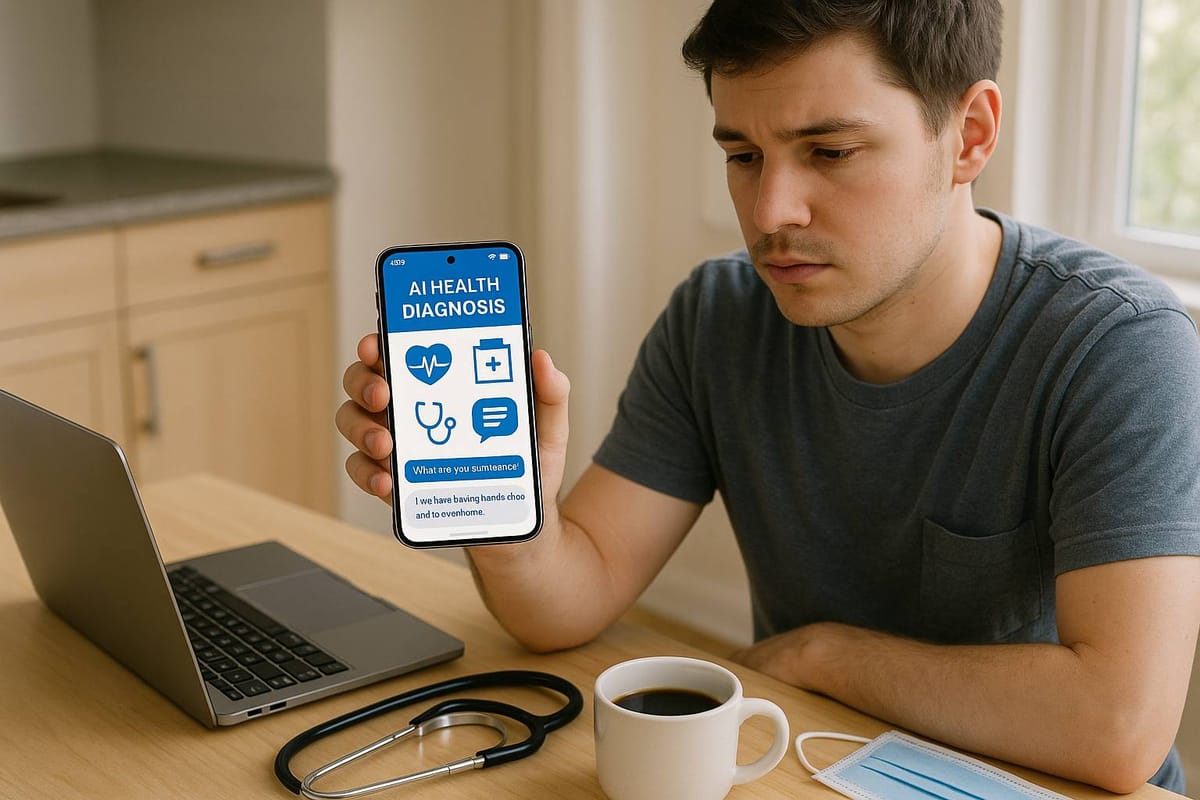AI Health Diagnosis Gains Traction in America
A recent survey shows many Americans now rely on AI for health diagnosis, highlighting the growing digitalization of healthcare services.

The use of artificial intelligence (AI) for personal health needs is becoming increasingly mainstream in the United States. A new national survey conducted in July 2025 reveals that more than half of respondents admit to using AI to check symptoms or even diagnose illnesses before consulting a doctor.
Surge in AI Use for Health
Digitalization in healthcare received a major boost after the pandemic, when limited access to traditional health facilities pushed people to seek alternative solutions. According to the survey, which involved over 2,000 American adults, 53% of respondents said they had used AI-based tools or apps to identify their own health problems. The most popular uses include health chatbots, self-diagnosis apps, and wearable devices now equipped with AI analytics.
Most users choose AI for its speed, convenience, and instant access, eliminating the need to wait in line at clinics or hospitals. Many also feel that AI can provide adequate initial answers, allowing them to make preliminary decisions—such as whether to seek a specialist or schedule further medical tests.
Public Trust and Skepticism
However, not all users fully trust AI diagnoses. Only about 28% of respondents say they truly trust AI-generated results enough to make medical decisions without consulting a doctor. The majority use AI only as a “second opinion” or preliminary reference and still opt for face-to-face consultations with healthcare professionals.
Researchers from the American Medical Association (AMA) emphasize the importance of using AI as a supporting tool, not a substitute for professional medical judgment. “AI technology is very helpful, especially for mild symptoms, but the final decision should always rest with a doctor,” stressed Dr. Emily Scott, a digital health innovation researcher.
Impact on Medical Practice
This trend is sparking discussion among medical professionals. Some doctors welcome AI, seeing it as a way to increase patient health literacy and make consultations more effective—especially if patients arrive with prior knowledge about their symptoms. On the other hand, there are concerns that patients who rely too heavily on AI could face misdiagnoses or delays in critical medical treatment.
A study by Stanford University School of Medicine earlier in 2025 found that AI-based diagnosis apps have an accuracy rate of around 70–80% for mild complaints like fever, flu, or muscle aches. However, for serious illnesses, accuracy drops significantly and professional validation is still necessary.
Regulatory and Ethical Pressure
This phenomenon is also fueling new demands for tighter government and regulatory oversight of AI health apps in the US. So far, the Food and Drug Administration (FDA) has issued strict regulations for AI diagnostic tools used in hospitals, but regulations for public-use apps remain limited.
The American College of Physicians (ACP) insists that all AI diagnosis apps must include clear disclaimers stating that the analysis is not a substitute for doctor consultations and should only serve as an initial reference.
The Future of AI Diagnosis in America
With rapidly advancing technology, the integration of AI in healthcare is expected to deepen. Many startups and tech giants in America are racing to launch AI diagnosis apps, promising ever-increasing accuracy and security. Nevertheless, health experts stress the need for public education so people do not become overly dependent on AI alone.
For many Americans, AI is now at the forefront of helping them quickly identify health issues. Still, consulting a doctor remains the essential step to ensure diagnostic safety and accuracy.





Comments ()